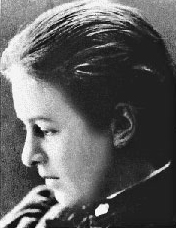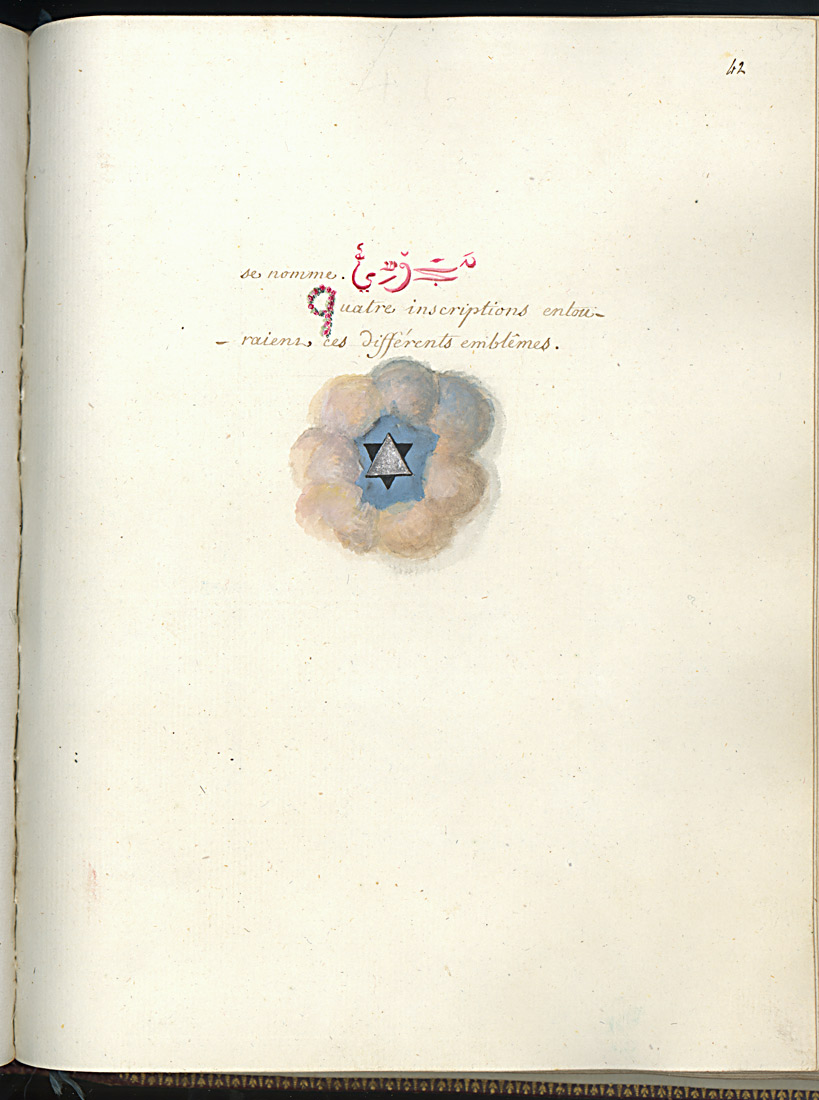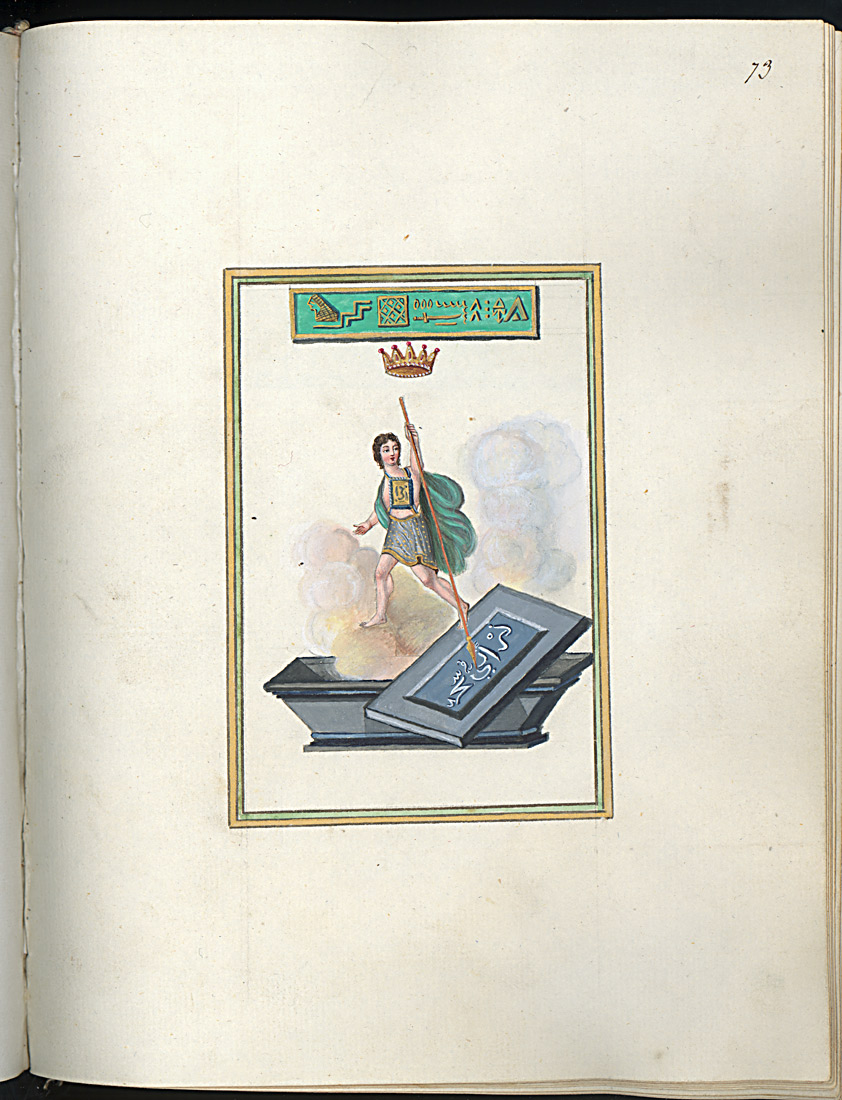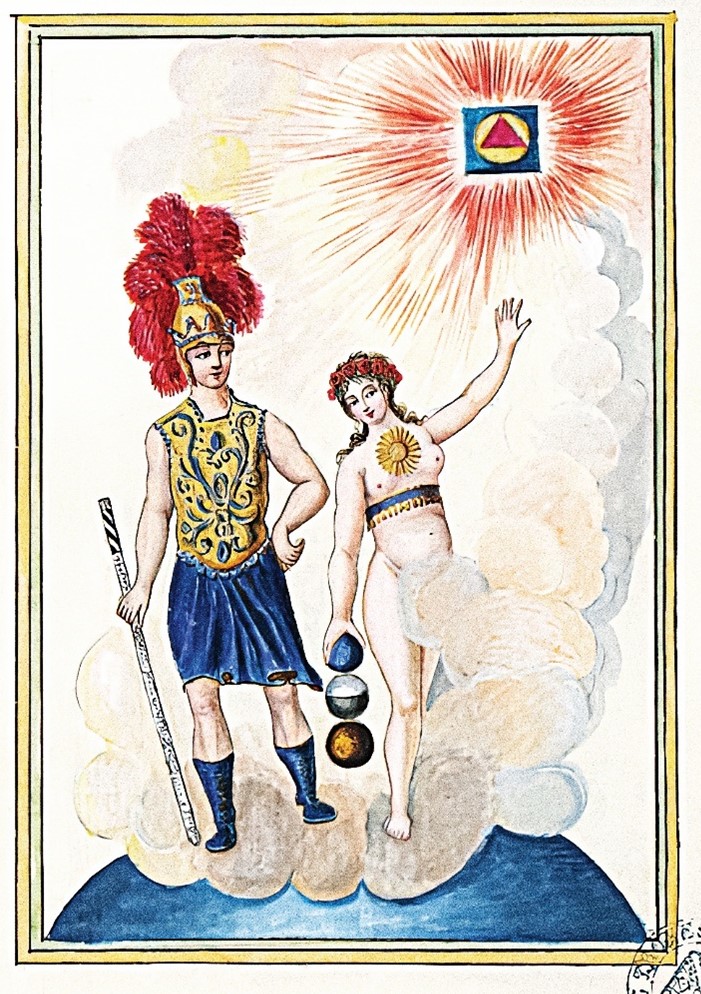Evelyn Underhill and The Cloud of Unknowing
Evelyn Underhill was already 47 when she published her translation of the Middle-English mystical treatise known to us as The Cloud of Unknowing in 1922. A Christian mystic, Underhill was influenced by Friedrich von Hugel’s division of the institutional, intellectual and mystical camps of religious systems, and unashamedly wrote of her catholic mysticism and outlook in mainstream media at a time when few writers were producing very much in that field at all. Underhill’s wonderful blend of exoteric doctrine with esoteric practical application made her at one time a household favourite in England. Although no longer in existence, her radio broadcasts for the BBC in the 1930s are preserved in transcripts, and some have been published. These focused on the spiritual life and the goal of rising above life’s difficulties by embracing a gentle, meditative and balanced approach to the turmoil and vicissitudes of everyday existence.

In her earlier years, to some extent Underhill provided a Christian counterpart to James Allen’s westernised Buddhism, and both lived at a time when more than a few eyebrows were raised in sceptical disapproval of the “sentimentalism” of such writing. The religious establishment in Edwardian England had little time for adventure into the superconscious, yet this world-view no longer reflected the needs of mainstream society. The late nineteenth and early twentieth centuries were the heyday of spiritism and theosophy, and such non-orthodox expression of the primal needs of people to engage in meaningful spiritual experience were growing in popularity. Underhill knowingly filled the gap for Christian orthodoxy, albeit expressing at one point her view that “ … there is to be no wilful choosing of method; no fussy activity of the surface-intelligence. The mystic who seeks the divine Cloud of Unknowing is to be surrendered to the direction of his deeper mind, his transcendental consciousness: that ‘spark of the soul’ which is in touch with eternal realities.” (This and the quotations to follow are from her introduction to 1922 edition of The Cloud of Unknowing).
Among Evelyn Underhill’s most beautiful contributions to western esotericism was her translation of The Cloud of Unknowing. Underhill was proficient in Middle English, and sought to retain the essential structure and style of the original text in her work. This does make it a more challenging read for the modern mind, but at the same time her version elicits a sense of the numinosity of the treatise, and preserves the beauty and that quality of humility of which it abounds. A dry, modern vernacular does not have the same effect, any more than dross modern western liturgies in common worship can ever replace the magnificence and sublime beauty of Cranmer's Book of Common Prayer or Coverdale's psalms.
Cloud of Unknowing. Underhill was proficient in Middle English, and sought to retain the essential structure and style of the original text in her work. This does make it a more challenging read for the modern mind, but at the same time her version elicits a sense of the numinosity of the treatise, and preserves the beauty and that quality of humility of which it abounds. A dry, modern vernacular does not have the same effect, any more than dross modern western liturgies in common worship can ever replace the magnificence and sublime beauty of Cranmer's Book of Common Prayer or Coverdale's psalms.
In her introduction to The Cloud of Unknowing, Evelyn Underhill connects the tradition contained in the manuscript with the sixth century Neoplatonism of Romano-Syrian “Pseudo-Dionysius“ monasticism. Indeed, there is no doubt this became the single greatest influence on catholic spirituality, and found its way into England through the work of early medieval translators on the continent. Underhill provides a fascinating background into the purported and claimed authorship of The Cloud of Unknowing, but avers that the true author will forever remain unknown: a monk or cleric, perhaps, but one certainly influenced by “the old Platonic theory of mystical experience.” Underhill is far more interested in the mind of the anonymous writer, and is impressed with the “great simplicity” with which he describes the soul’s 'reintegration' with God through “the perfect and passionate setting of the will upon the Divine.”
 Contemplation through concentration of the mind on developing an emotional state of feeling love for the Divine is key to attainment of the Absolute. It prefigures Colin Wilson’s “peak experience” and requires an emptying of memory and external distractions to the point of unknowing the personality self. It is this which engenders the union with the Cloud of Unknowing, that which Underhill equates with the “Divine Ignorance of the Neoplatonists.” The ‘Cloud’ itself is the Divine materia, the substance and essence of Divinity, that which dwells within each human soul and yearns for our reunion with it. Underhill emphasises that this is not the same state of bliss as that attained in the eastern religions who focus on what she terms “quietism”, since the focus is a personal God, manifested and revealed to us in history and through his covenants. This state cannot only be achieved though the discipline of engendering a trance-like state of feelings of love for God, but requires the outward manifestation of humility and charitable love. In a sense, these three pillars (feelings of love for a personal God developed through the will, humility and charity shown towards others) are identifiable with the three great pillars of modern Freemasonry: the Wisdom, Strength and Beauty represented by the Master and his Wardens).
Contemplation through concentration of the mind on developing an emotional state of feeling love for the Divine is key to attainment of the Absolute. It prefigures Colin Wilson’s “peak experience” and requires an emptying of memory and external distractions to the point of unknowing the personality self. It is this which engenders the union with the Cloud of Unknowing, that which Underhill equates with the “Divine Ignorance of the Neoplatonists.” The ‘Cloud’ itself is the Divine materia, the substance and essence of Divinity, that which dwells within each human soul and yearns for our reunion with it. Underhill emphasises that this is not the same state of bliss as that attained in the eastern religions who focus on what she terms “quietism”, since the focus is a personal God, manifested and revealed to us in history and through his covenants. This state cannot only be achieved though the discipline of engendering a trance-like state of feelings of love for God, but requires the outward manifestation of humility and charitable love. In a sense, these three pillars (feelings of love for a personal God developed through the will, humility and charity shown towards others) are identifiable with the three great pillars of modern Freemasonry: the Wisdom, Strength and Beauty represented by the Master and his Wardens).
One aspect of Evelyn Underhill’s work and mission which strikes me as the most valuable, is her unsentimental approach to mysticism. She demonstrates in her writings a distinct dislike of short-cuts to occult knowledge and supernatural experiences, and shuns magic for that very reason. For her, the “healthy and manly view of the mystical life” is that of growth towards God. Reintegration of the spirit within is something that should be organic and unforced, save and to the extent that will in contemplative exercises, humility and charity should be practised. These alone lead to a lasting evolution of the spiritual-self, the minor spirit within each of us, and in which there can be no place for the ego and no hurry to experience supernatural realities. It is a little like St Peter dashing to the empty tomb at Easter when Mary has announced the risen Lord, only to find himself back on his fishing boat, until he is called upon by Christ to dedicate the rest of his life in the hard slog and labour of ministry to others and an eventual cruel death in that service. There is no escape from the realities of life and its difficulties, but faith and the practise of it through will, humility and charity will support us through it and eventually, when we are ready – not before – will lead us to the mystical union we desire.
unsentimental approach to mysticism. She demonstrates in her writings a distinct dislike of short-cuts to occult knowledge and supernatural experiences, and shuns magic for that very reason. For her, the “healthy and manly view of the mystical life” is that of growth towards God. Reintegration of the spirit within is something that should be organic and unforced, save and to the extent that will in contemplative exercises, humility and charity should be practised. These alone lead to a lasting evolution of the spiritual-self, the minor spirit within each of us, and in which there can be no place for the ego and no hurry to experience supernatural realities. It is a little like St Peter dashing to the empty tomb at Easter when Mary has announced the risen Lord, only to find himself back on his fishing boat, until he is called upon by Christ to dedicate the rest of his life in the hard slog and labour of ministry to others and an eventual cruel death in that service. There is no escape from the realities of life and its difficulties, but faith and the practise of it through will, humility and charity will support us through it and eventually, when we are ready – not before – will lead us to the mystical union we desire.
Evelyn Underhill’s translation of and introduction to The Cloud of Unknowing has been republished by St Athanasius Press (2017) ISBN 978-1542458559
The photograph above is of Evelyn Underhill circa 1900; and the illustrations are from The Most Holy Trinosophia www.mrosborne.co.uk/book/the-most-holy-trinosophia
This article is the copyright (c) of M.R. Osborne, 2022






